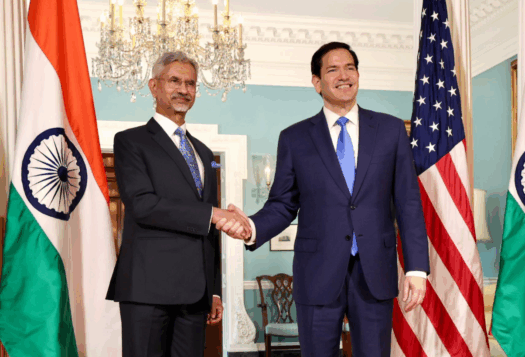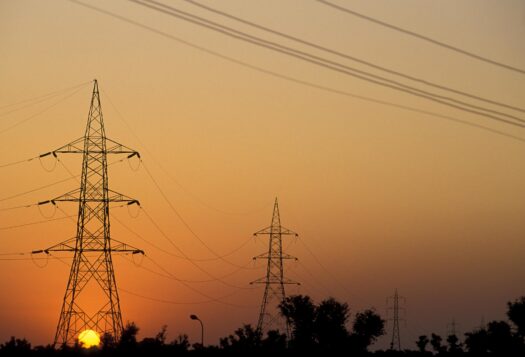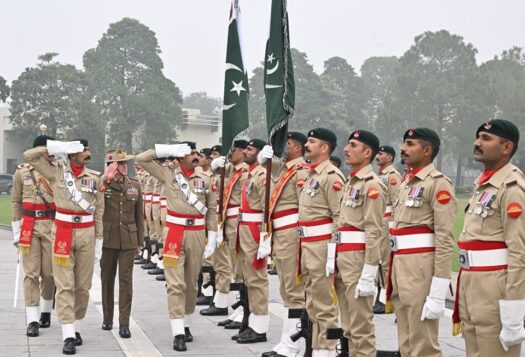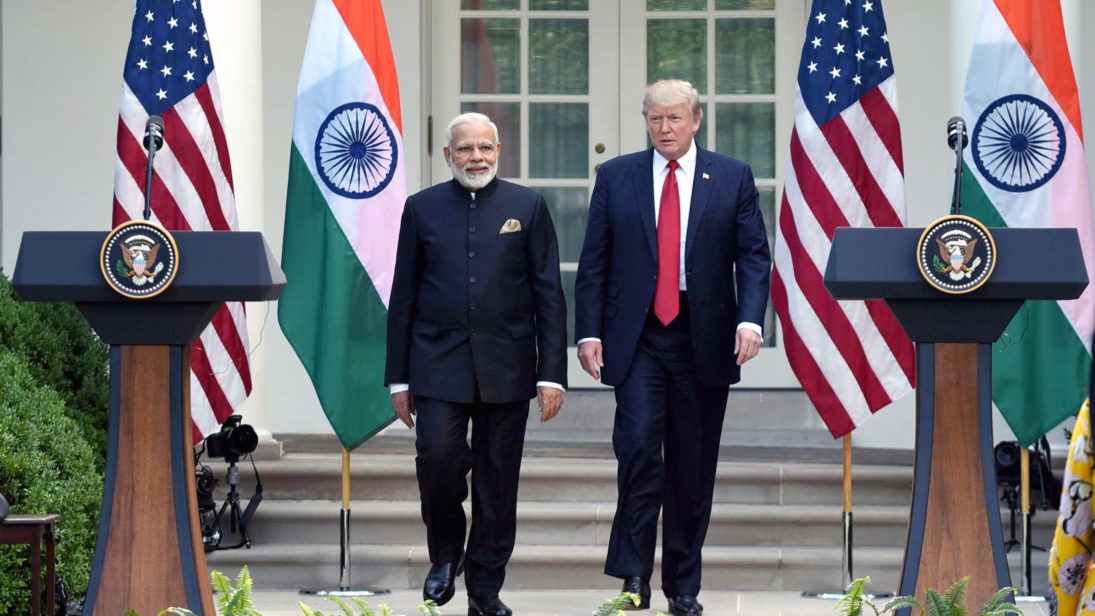
Late last month, U.S. President Donald Trump rattled the diplomatic establishments in the United States and India when he remarked that he would be willing to mediate the Kashmir conflict. With Pakistan’s Prime Minister Imran Khan at his side, President Trump betrayed a sense of complete ignorance about the complexity of the subcontinental quagmire. While India immediately rejected Trump’s claim that Prime Minister Narendra Modi had asked Trump to mediate the Kashmir dispute, Trump’s comments have raised questions about India’s importance in contemporary U.S. foreign policy. Significantly, these comments underscore the divergence between the two countries, notwithstanding India’s growing stature over the last twenty years as a “natural strategic partner” to the United States.
Trump’s policy towards the two subcontinental powers reflects his transactional world view and is based on an understanding of the strategic utility and constraints encompassing United States-Pakistan and United States-India relations. The importance of Pakistan, due to its geostrategic location and influence over the Taliban, has heightened because of Trump’s political goal to end the U.S. war in Afghanistan. The United States’ recent reset of relations with Pakistan has negatively affected India’s interests in the region, as well as raised questions about U.S.-India bilateral ties. Trump’s indifference for India’s concerns, from the peace process in Afghanistan to demands for a dehyphenated U.S. foreign policy approach vis-a-vis India and Pakistan in South Asia and beyond, are suggestive of a major ambivalence towards India.
Trump’s Transactional Approach to Foreign Policy
Trump wishes to oversee an end to the United States’ long-drawn and costly involvement in Afghanistan, to include the withdrawal of troops from the region. This is part of his larger attempt to cut down on U.S. entanglement in global affairs. While the Taliban continues to engage in terrorist activities in Afghanistan, U.S. representative Zalmay Khalilzad is trying to broker a power-sharing peace deal between the elected government of Afghanistan and the Taliban. Pakistan’s leverage over the Talib an is crucial for a breakthrough in the talks, which would facilitate a U.S. exit from the region.
Not too long ago, President Trump criticized Pakistan for harboring and supporting terrorist organizations that operate in Afghanistan. His administration even withheld military aid to Pakistan while it reviewed Pakistan’s record of fighting terrorism. However, Prime Minister Khan’s meeting with Trump in late July indicates a renewal in bilateral relations between Islamabad and Washington. Furthermore, the United States relies on Pakistan for logistics, and as political scientist C. Christine Fair states, “Logistics will beat strategy every time.” Therefore, much to the dismay of India, the strategic utility of Pakistan has significantly increased per the U.S. view.
Evolving United States-Pakistan Relations and Effects on India
Imran Khan’s visit was hailed as a victory in Pakistan, however, it had major ramifications for India. President Trump voiced his optimism about Pakistan’s capacity to help achieve a peace deal with the Taliban, ensuring Pakistan’s future role in Afghanistan. Furthermore, Trump provided a public acknowledgement of Pakistan’s perspective on Kashmir. Similar to successive U.S. administrations, Trump too is ready to help and aid Pakistan, despite its vulnerability as a volatile state with an even more volatile economy. In tune with the president’s transactional worldview, the resetting of bilateral relations lent President Trump opportunities to assuage Pakistan’s interests as well. Trump’s comments on Kashmir can be seen as the latest in a series of perks offered to Pakistan, including the declaration of the Baloch Liberation Army as a terrorist organization and the approval of military sales of USD 125 million to support the United States’ F-16 fighter jets in Pakistan.
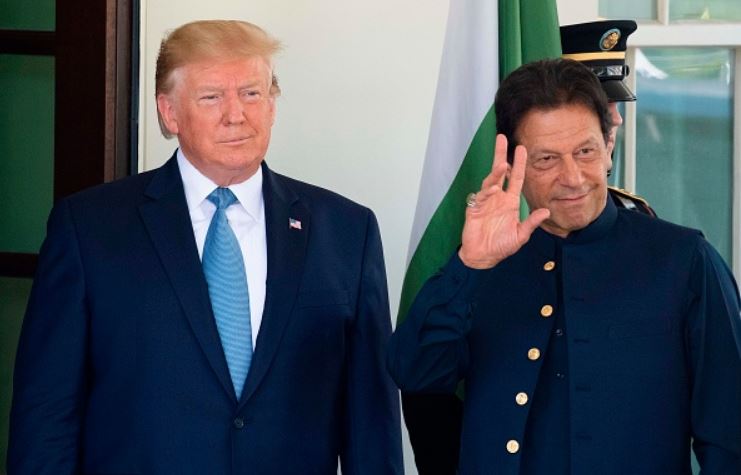
The United States’ direct negotiations with the Taliban negate India’s ardent insistence on an “Afghan-led, Afghan-owned and Afghan-controlled” peace process. Not only does the United States’ deal with the Taliban endanger years of India cultivating ties with a democratic Afghanistan, the possible entry of the Taliban in its political structures could severely dent India’s future prospects in the country since the Taliban have strong ties to Islamabad and Rawalpindi. India’s enhanced uncertainty about the United States, coupled with fear over the effects of troop withdrawal from Afghanistan, may have pushed India’s hand vis-a-vis the abrogation of Jammu and Kashmir’s special status in the Indian Union. It should be noted that the issue of Afghanistan is not the core focus of India’s bilateral relations with the United States. However, New Delhi has become increasingly apprehensive in light of Trump’s overlooking of India’s interests.
Trump’s Ambivalence towards India
Though relations between Washington and Delhi have gone from strength to strength since the late 1990s, the Trump era has been fraught with several challenges for India. Strategically, India has never been closer to the United States with the signing of major defense-related agreements, increasing cooperation in areas of maritime security and defense technology, and strategic convergence between the two countries vis-a-vis the Indo-Pacific region. Despite these improvements, U.S.-India relations have also been marked by friction over trade and economic policies.
While prioritizing its national interests, India would do well to move from strategic autonomy and issue-based alignment to strategic transactions and pragmatism in its relations with key partners like the United States.
The mini trade war between the two countries and Trump’s tweet deriding the Indian tariff regime as “no longer acceptable” reflects Trump’s ambivalence towards India. As Aparna Pande, Director of the Hudson Institute’s Initiative on the Future of India and South Asia, rightly points out “…nationalist sentiment and demands of domestic politics is driving [India and the United States] in a direction where the divergence of economic priorities could undermine strategic convergence.” Hence, recent trade disputes threaten to erode areas of past strength in the U.S.-India relationship.
Conclusion
India should let pragmatism influence its foreign policy choices. Despite Trump flip-flopping on his comments on Kashmir mediation, India has found support from the United States in the closed-door meeting of the United Nations Security Council over Kashmir. Likewise, India should work to find common ground with the United States to satisfy its interests in the Af-Pak region. While prioritizing its national interests, India would do well to move from strategic autonomy and issue-based alignment to strategic transactions and pragmatism in its relations with key partners like the United States.
Economically, India should understand that with a populist president like Trump, policy decisions on issues such as trade and commerce often seek to satisfy his domestic political constituency. Small compromises over trade-related issues could enable India to prioritize its larger strategic imperatives, which include growing a coalition in the Indo-Pacific, countering China’s rise, and combating terrorism among others. At the very outset, India must shun its rigid protectionist trade-related policies, engage and negotiate on different issues with countries like America to avoid inadvertent blowbacks, including the granting of access to its markets. India needs to realize that it must lend more to gain credit in a rapidly changing international system, especially while dealing with leaders such as Donald Trump.
***
Image 1: Press Information Bureau, Government of India
Image 2: Jim Watson/AFP via Getty Images
